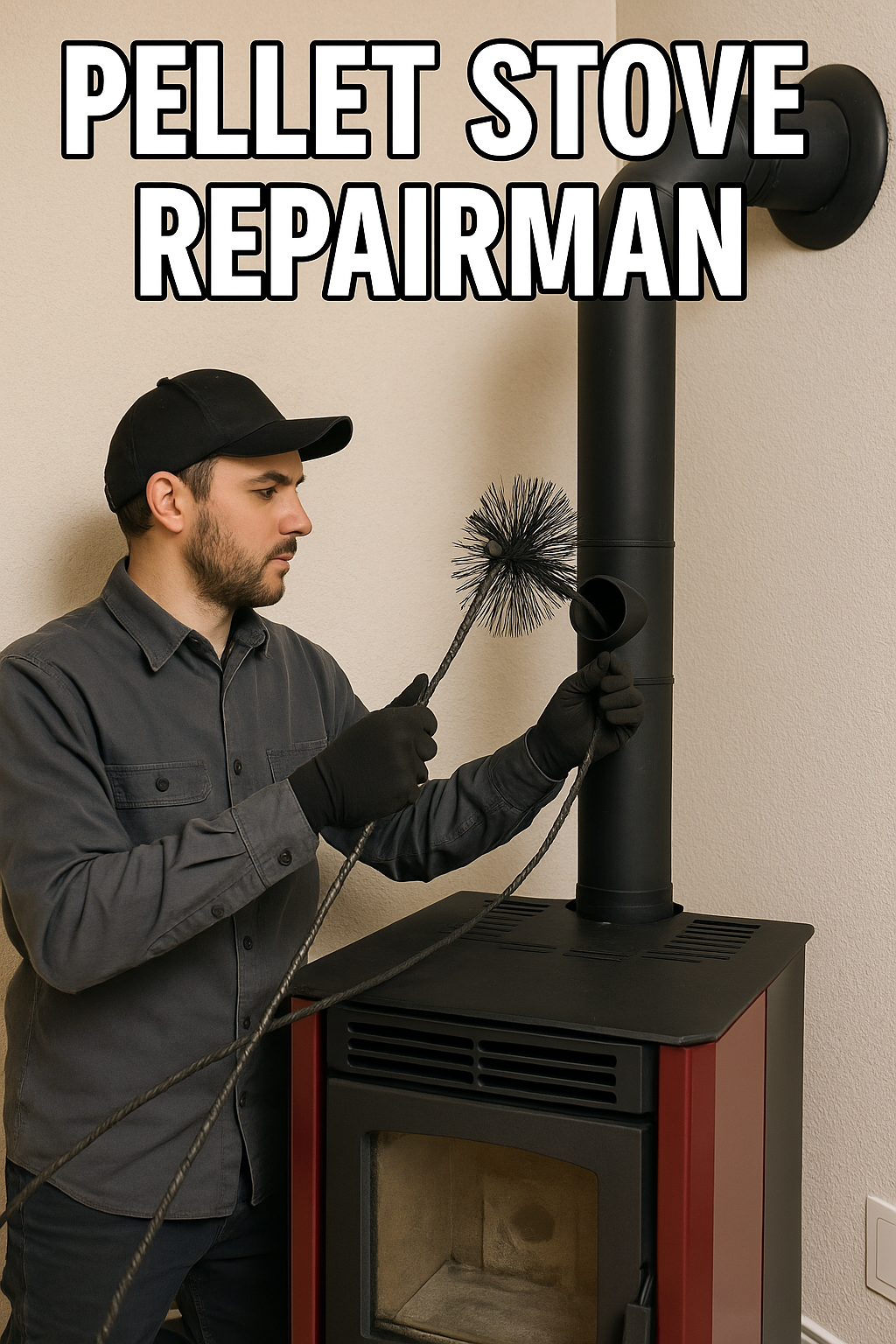Preparing for a service appointment may seem straightforward, but when it comes to appliances like pellet stoves, preparation plays a significant role in ensuring efficient repairs. Homeowners rely on pellet stoves for warmth, cost savings, and sustainable energy, but like any heating system, they occasionally need professional attention. Knowing how to prepare properly allows you to save time, avoid additional expenses, and give technicians the environment they need to work safely and effectively. With the right preparation, you can maximize the value of your appointment with a Pellet Stove Repairman.
Why Does Preparation for a Repairman Visit Matter?
Why should homeowners focus on preparation before the visit even begins? The answer is simple—efficiency. A technician’s time is valuable, and your readiness directly impacts the quality and speed of the repair. By creating a safe, accessible workspace, gathering information about the stove’s performance, and addressing basic cleaning beforehand, you allow the pellet stove repairman to focus entirely on diagnosing and fixing the issue.
What Is the Cost Breakdown of Chimney Maintenance for Pellet Stoves?
When homeowners schedule pellet stove servicing, they often forget that chimneys also require attention. Since pellet stoves vent exhaust through a pipe or chimney system, Chimney Maintenance plays a direct role in performance and safety. Here’s a breakdown of typical costs:
Chimney Maintenance Services
1. Basic Inspection
Average Cost: $75 – $150
Notes: Identifies blockages or leaks
2. Standard Cleaning
Average Cost: $150 – $250
Notes: Includes ash and soot removal
3. Deep Cleaning & Repairs
Average Cost: $250 – $500
Notes: Fixes cracks, liners, or seals
4. Annual Maintenance Package
Average Cost: $200 – $400
Notes: Prevents buildup and ensures efficiency
These costs vary depending on location, the condition of the chimney, and the frequency of pellet stove use. Including chimney services during pellet stove repairs reduces the likelihood of emergency service calls later.
What Features Should Homeowners Know About Pellet Stoves Before Repairs?
Understanding key features of pellet stoves helps homeowners communicate effectively with technicians. Stoves contain mechanical parts like augers, blowers, and rollers, which regulate pellet feeding and airflow. Electronic components such as thermostats, control boards, and electric igniters also play crucial roles. Problems often arise when these systems fail to synchronize. Many stoves also use automatic settings, making calibration an important step during servicing. A pellet stove repairman will evaluate these features, diagnose malfunctions, and suggest whether repair, replacement, or maintenance is best.
How Can You Prepare for the Visit Effectively?
To prepare for a repair appointment, homeowners should take a few practical steps. First, clear the area around the stove to give technicians full access. Remove furniture, rugs, or clutter from the surrounding space. Second, perform basic cleaning by emptying ash pans and brushing away loose debris. While deep cleaning should be left to professionals, this step helps technicians work faster. Third, gather important information, such as how long the issue has persisted, any strange noises, error codes, or visible damage. Lastly, ensure all vents and exhaust points are accessible, especially if cleaning services are part of the appointment.
What Role Does Regular Maintenance Play in Avoiding Repairs?
Regular maintenance reduces the likelihood of needing major repairs. Simple practices such as cleaning burn pots, checking pellet quality, and scheduling annual inspections extend the stove’s life. A well-maintained unit uses fewer pellets, distributes heat evenly, and reduces the likelihood of emergency repairs. By combining DIY upkeep with professional pellet stove repair service visits, homeowners ensure consistent performance. Maintenance is particularly important in areas where stoves see heavy seasonal use, such as rural homes or regions reliant on wood and coal heating alternatives.
What Questions Should You Ask Your Technician?
During a repair visit, it’s beneficial to ask your technician about preventive measures and service recommendations. Questions may include: What type of pellets work best for this stove? How often should professional cleaning be scheduled? Are there signs of hidden issues to monitor? Asking these questions gives homeowners valuable insight into keeping their system efficient. Pellet stove technicians are not just repair professionals but also advisors who help maximize performance through proper servicing.
FAQs
Q1: Can I repair pellet stove parts myself?
Minor cleaning is possible, but mechanical or electrical repairs should always be left to a certified pellet stove technician.
Q2: How often should a pellet stove repair service be scheduled?
Professional servicing is recommended at least once a year, ideally before peak heating season.
Q3: What happens if maintenance is ignored?
Neglecting maintenance can lead to poor efficiency, safety risks, or complete system failure.
Q4: Do technicians also handle chimney cleaning?
Yes, many repairman services offer chimney cleaning or partner with local providers to ensure complete safety.
Q5: Are pellet stove repairs expensive?
Costs vary depending on the problem, but regular maintenance is always more affordable than emergency service or complete replacement.
Conclusion
Preparing for a pellet stove repairman visit ensures smooth, efficient service and reduces repair times. By clearing the work area, performing basic cleaning, and communicating issues clearly, homeowners maximize technician effectiveness. Professional pellet stove repairs and chimney maintenance not only restore performance but also extend the life of the unit. With support from experienced pellet stove technicians, homeowners enjoy reliable, safe, and efficient heating throughout the season. Proper preparation and consistent servicing are essential to keeping pellet stoves working at their best.
Read More: Chimney Sweep Baltimore





Comments